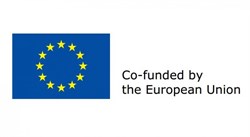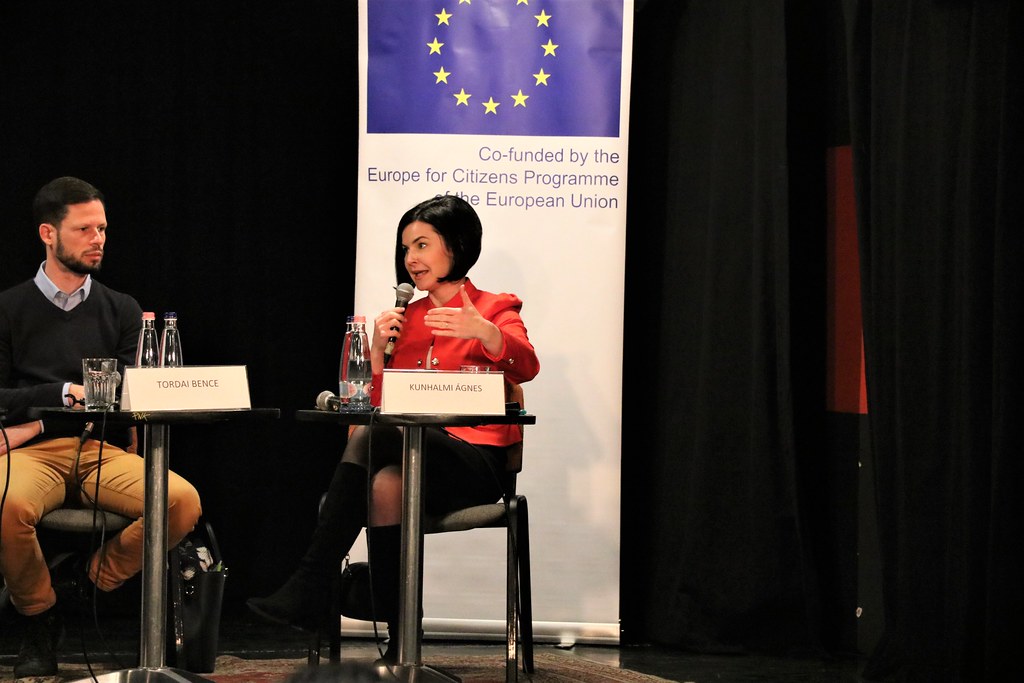

On March 8, the Republikon Institute organized a conference on the anti-gay or child protection referendum. In the first half of the two-section discussion, Bence Tordai and Ágnes Kunhalmi shared the political side of the issue, while in the second section Zsolt Osváth, Noá Nográdi, Noémi Kiss, Krisztián Nyáry, and Tamás Dombos went around the human and social aspects of the problem. The conversations were moderated by Dóra Ónody-Molnár.
In the first panel, Bence Tordai argued that the aim of the referendum on child protection is to stir up social anger against certain minority groups. As for the fact that the referendum could be held on the election day because of Tímea Szabó's bill from the opposition party Párbeszéd, Tordai said that the Fidesz party can do what it wanted to do anyway, so the issue was of no great importance. Tímea Szabó, incidentally, had originally submitted a referendum initiative against the Fudan University for election day. On the issue of participation in the referendum on child protection, Tordai shares the view of the civic activists that participation in the referendum is a must, since it is held at the same time as the elections, but that it is invalid. Replying to the question whether there is unity in the opposition on the referendum, including Jobbik party, which voted in favour of the referendum, Tordai said that Jobbik does not support homophobic and exclusionary policies either. Not only because of the campaign, but also on principle. Tordai from the party Párbeszéd also spoke at the conference about the problem of the government party's failure to ratify the Istanbul Convention and the school guard system which does not protect against bullying. Instead of school guards, psychologists, educational assistants and social workers are needed in schools. At the end of the discussion, it was said that a real social debate on LGBTQ issues is needed, which could include a discussion on the age at which sexuality can be discussed in schools.
Ágnes Kunhalmi said that it was a good idea of Tímea Szabó to hold the referendum and the elections at the same time, as it would save the budget 7 billion forints. However, the content of the referendum submitted by Fidesz is a political ploy to blame the opposition for untruths. The opposition's task can only be to invalidate the referendum, so the oppositon urges every voter to cast their ballot paper with two Xs or crossed out. It is important to make sure that the ballot paper is not blank, as this is a potential source of fraud. The united opposition does not talk much about the referendum because it only could support Fidesz, but opposition politicians see it as an important task to make society understand the real important issues of child protection. Reaching and informing voters living in the countryside is difficult, a problem that the democratic opposition has been struggling with for 12 years. Kunhalmi also said that it is necessary to join the Union for Children, as there is no institutional structure in Hungary where the necessary money for child protection can be drawn without burdening the budget. Ensuring that children are properly informed about sexual issues is also the responsibility of teachers and educators. However, gender identity is not a matter of learning and education, which can be deliberately changed, but is something that people feel for themselves.
At a roundtable discussion on the Child Protection Act and the referendum, writer Krisztián Nyáry said that the law can be interpreted in three ways. The first is the need to protect children from paedophiles, the second is anti-gay propaganda, and the third is that the law is about restricting culture and freedom of expression. According to the text of the law, the depiction of homosexuality in cultural works of art by persons under the age of 18 is prohibited. This is effectively unenforceable for publishers and other cultural operators, which might be right or wrong. It is not clear from the law what is meant by depictions of sexuality; the text also prohibits depictions that speak negatively of it or condemn it. It does not distinguish between a child aged 11 and a child aged 17, nor does it define what 'depiction' means. The law states that it is ‘prohibited to make available to persons under the age of 18 any content that depicts sexuality for its own purposes’. This decision not only fails to clarify who is to decide what is sexuality for its own sake, but also threatens the entire advertising industry where sex sells. The Hungarian government is taking the position of the Catholic Church in the 1200s, which labels sexuality for its own purposes as sodomy. On this basis, therefore, the law is not being obeyed and no one is obeying it, because it would be completely unrealistic.
Tamás Dombos Háttér Társaság started the discussion by saying that there is no such thing as propaganda for gender change. The aim of the emancipation movements is only to raise awareness of the phenomenon of transgenderism, not to re-educate, but to sensitise, even in schools. In response to Krisztián Nyáry's claim that the Child Protection Act is not being enforced and that no one is enforcing it, Dombos said that even if there are no real legal sanctions, there is self-censorship and some bookshops have taken down works depicting homosexuality on their own. Dombos also stressed that the law is clearly homophobic, as it binds parents, so it is not true that parents have autonomous decision-making rights. On the issue of transgenderism, Dombos said that it is now coming to the fore in Western Europe, as the movements to emancipate homosexuality have been completed and are successful. However, in Hungary, not only has equalisation not yet taken place, but a transgender person has to have the T on their ID.
Zsolt Osváth youtuber also talked about the Pride. According to him, the movement should be more diverse and tolerant of different opinions. The answer to J.K. Rowling's opinion is not to cancel culture either, the author is not transphobic, and it is possible to accept different opinions. The biggest problem with the law and the discourse is ignorance, it is terrible that people can be led to believe that they could be urged to change gender. Osváth agreed with other speakers that there are no legal sanctions in the law, but gave a personal example to illustrate the point. On Valentine's Day, Osváth's restaurant took part in an initiative where a table was symbolically left empty as a reminder to gay couples who stayed at home because of exclusion. RTL's Fókusz programme interviewed Osváth on this occasion, but the interview was not allowed to be broadcast by law because of its gay theme. Osváth says that what Fidesz is doing a political campaign which destroys people. It is scandalous that the prime minister can say on Kossuth Radio that there is a debate about whether gays can become paedophiles. This is simply a lie.
Writer Noémi Kiss turned to LGBTQ issues because they are not widely discussed. She cited a story of when she was not allowed to talk about hormone medication for children at Pride. This also shows the importance of speaking out. Also on the opposition side, it would be better if people were more nuanced in their thinking – she added.
Women's rights expert Noá Nográdi spoke about what is really threatening children today. It is sexual violence and abuse. There is also a lack of communication and information about this, the issue is not being discussed. Unfortunately, the law does not help. It is also a huge problem that schools cannot provide adequate information – she concluded.

Co-founded by the Europen Union
















